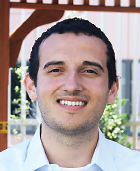Psychiatrist Helped Lay Groundwork for Psychiatry’s Future

Over the past four decades, Dr. Lewis Judd has been the chair of a distinguished psychiatry department. He has guided APA as vice president, the National Institute of Mental Health (NIMH) as director, and countless faculty as a mentor. Recently, Dr. Judd announced that he will step down from his position as chair of the Department of Psychiatry at the University of California, San Diego (UCSD). As a current resident in his program, I was privileged to interview him. He provided me with perspectives on his life, career, and the state of psychiatry today.
Dr. Judd’s father was an obstetrician in Los Angeles who rose to become president of the American Association of Obstetricians and Gynecologists. Following in his father’s footsteps, one of Lewis Judd’s first projects was studying phenylketonuria in newborn children. He was immediately struck by the devastating effect of this simple mutation, especially its impact on the nervous system. He came to believe that we would be able to explain and solve the most complex neuropsychiatric disorders with science and research.
He recounts how, when entering the field of psychiatry, his medical colleagues, as well as his father, thought of psychiatry as an important but nonevidence-based specialty. Psychiatry had a tendency to follow the charisma of psychoanalysts over the researchers who were struggling to find the biochemical correlates of mental illness. His dream was to impact, lead, and steer psychiatry’s rise as a specialty that was fully respected and admired in medicine.
This belief in evidence-based psychiatry led to his interest in the Department of Psychiatry at UCSD, which at the time was focusing on molecular neuroscience. He entered the department as vice chair in 1970, and by 1977 had become its chair. His goal was to build a department by seeking the best and the brightest, who would thus become highly productive faculty members. Specifically, he stated that the key to building his department was to hire “nice, pleasant, and supportive” academicians who would collaborate well together. Dr. Judd said he is extremely proud of his faculty, which he describes as not only “the who’s who” of psychiatry but also as his “family.”
A key event in Dr. Judd’s career was his time as director of the NIMH from 1987 to 1991. During his tenure at the agency, he became the architect of a project to showcase “psychiatry’s organ: the brain.” By advocating before Congress and other federal agencies, Dr. Judd managed to put psychiatry at the forefront of medical research and inaugurated “The Decade of the Brain.”
Looking ahead, he described how much the field has moved forward in the past 30 years to a much more scientific and evidence-based field. He said that he is proud of the large imprint that his department has had on the development of DSM-5., which will be published this month. However, he pointed to continued struggles, as DSM-5 remains a needed but insufficient model of mental illness, noting that “it is a necessary but imperfect step-forward for psychiatry”. He also applauded endeavors like NIMH’s Research Domain Criteria as a path to the future of psychiatry, which he believes is the right track and based on sound research.
In the time he spent with me, Dr. Judd continually expressed his optimism, saying that we are in our field’s Golden Era. Psychiatry is advancing faster than any other field of medicine, and the changes on the horizon will be revolutionary. “It is a great time to become a psychiatrist,” he stressed.
He believes that molecular genetics and brain imaging are keys to psychiatry’s progress and pointed out how a near majority of our genes impact the brain, and only now do we have the tools to study their effects. Furthermore, the tools of brain imaging are allowing us not only to examine the brain, but to study the actual symptoms in real time as patients are experiencing them.
To all residents at UCSD, Dr. Judd will continue to be our mentor and our source of inspiration.
From all the residents and faculty at UCSD, as well as the field of psychiatry: “Thank you Dr. Judd, your legacy continues.” ■



